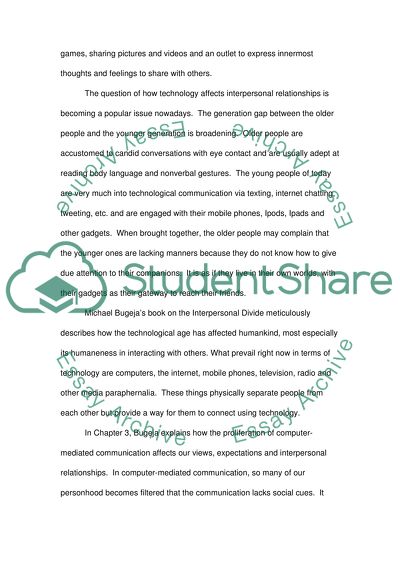Cite this document
(“Technology and Interpersonal Relationships Essay”, n.d.)
Retrieved from https://studentshare.org/journalism-communication/1436209-interpersonal-communications-technology-and
Retrieved from https://studentshare.org/journalism-communication/1436209-interpersonal-communications-technology-and
(Technology and Interpersonal Relationships Essay)
https://studentshare.org/journalism-communication/1436209-interpersonal-communications-technology-and.
https://studentshare.org/journalism-communication/1436209-interpersonal-communications-technology-and.
“Technology and Interpersonal Relationships Essay”, n.d. https://studentshare.org/journalism-communication/1436209-interpersonal-communications-technology-and.


